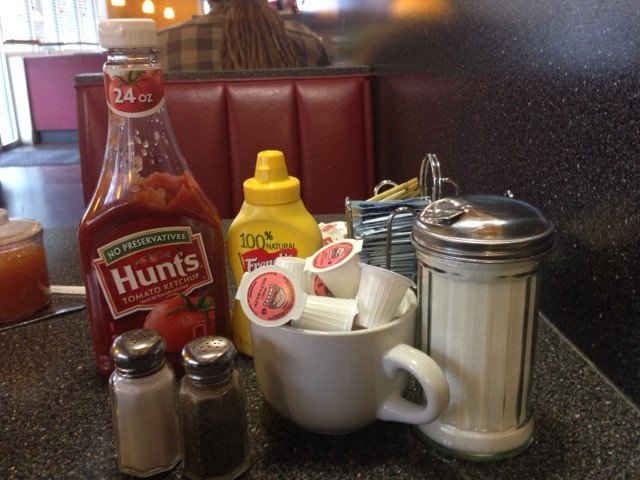Value of Condiments and Connections
Salt and Pepper. Ketchup and Mustard. Cream and Sugar. They just go together, right? While sitting in a local diner waiting for my car to be serviced several years ago, I noticed the condiments on the table and believe it or not, it got me thinking about my clients and the relationship I have with each of them. Is connection to your clients a bad thing?
There are certainly some very well-respected leaders in the evaluation field that would say that was true. That connection is at the very least -- not necessary. Other very well respected leaders who would say the exact opposite -- connection to the client (i.e. a relationship) is indeed necessary and without it, evaluation use is much less likely to happen.
While pondering this idea over the last few weeks, I came across the 2009 debate between Dr. Michael Scriven and Dr. M. Q. Patton (MQP) http://ccdl.libraries.claremont.edu/cdm/singleitem/collection/lap/id/70
MQP states that evaluations should be judged on their actual utility and use. He states that evaluators should be concerned and responsible for the evaluation from start to finish with use in mind. The test of success then, is whether or not the evaluation report is used. MQP argues that the relationship between evaluator and client has a great deal to do whether or not that happens.
This viewpoint is 360 degrees from a research model in which the researcher is a detached, neutral observer of the facts. But honestly, research is never value-neutral. The question is whose value will dominate the design of the evaluation and interpretation of the evidence?
While the relationship between the evaluator and the client is important, the evaluator can’t be so attached as not to provide an objective read of the data and make solid professional recommendations. Sometimes it means being the bearer of bad news…this program does not show evidence of positive results….Ouch! But an evaluator who establishes at the outset that their focus is on program improvement helps set the tone for a collegial and trusting relationship with the client. A healthy evaluator-client relationship helps to make the medicine go down and may make hearing recommendations a little easier to swallow and implement.
If you’re an evaluator, what’s your take on attachment to clients?
If you’re a consumer of evaluation, do you prefer a connection with your evaluator or a more detached “expert?”

